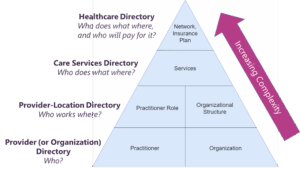The following is a guest article by Dani Foust, Head of Global Talent Acquisition at Pluralsight
The role of IT in healthcare has shifted from a support function to a mission-critical pillar of care delivery. In healthcare, few things are as important, or as challenging, as maintaining a well-equipped health IT workforce. With digital transformation accelerating across the industry, the demand for skilled health IT professionals has grown exponentially in recent years, and this trend is expected to continue through 2033. However, health systems are grappling with workforce shortages, financial constraints, and a mounting need to onboard and upskill employees more efficiently.
The widening skill gaps in health IT are contributing to the strain on healthcare technology teams that are in many cases already overstretched. The traditional paths for continuing education such as graduate degrees, multi-day in-person workshops, or custom-built internal programs are often cost-prohibitive and logistically unsustainable for some healthcare organizations. Nevertheless, continued education remains an essential pillar of a secure and responsive IT infrastructure, particularly as new technologies emerge and cybersecurity threats become more sophisticated.
Fortunately, the rise of scalable, online learning models is beginning to shift the equation in favor of healthcare organizations, especially those operating in underfunded systems.
Rethinking IT Education in Healthcare
Historically, ongoing tech education has required significant investment in time, money, and staff resources. These barriers have often left smaller health systems and safety-net providers behind in the race to adopt and manage modern IT tools. But that paradigm is changing. Today, subscription-based online learning platforms are giving health systems new ways to provide continuous, cost-effective education to their teams.
These platforms offer healthcare IT professionals access to vast content libraries, self-paced courses, and certification pathways that are aligned with real-world job requirements. Most importantly, they make learning available anytime and anywhere, which is ideal for healthcare tech workers who are juggling project deadlines, on-call responsibilities, and unpredictable job demands.
Another promising aspect of online learning is its potential to foster a more inclusive and agile IT workforce. By lowering the cost and time commitment typically required for technical upskilling, online platforms open doors for professionals from underrepresented backgrounds or nontraditional career paths. This helps create a more diverse talent pipeline, which research shows is directly linked to higher innovation and better decision-making throughout an organization.
Moreover, for healthcare organizations in smaller markets or remote regions, where competition for health IT talent is intense, these platforms level the playing field. They allow organizations to open the recruitment pool to less qualified applicants who show promise and rapidly train them as new hires on critical systems, protocols, and technologies without waiting for costly in-person training or travel-based learning opportunities.
A Strategic Investment in Onboarding and Retention
In addition to preparing employees for current needs, upskilling also future-proofs a workforce in an environment of rapid technological change. For healthcare organizations, investing in scalable training solutions provides faster onboarding, higher productivity, and stronger employee engagement.
Employees who are given opportunities to grow their skills are often more likely to stay with their organizations long-term. This is especially valuable in healthcare IT roles, where institutional knowledge and stability are critical to supporting patient safety, data security, and operational continuity.
In short-staffed environments where burnout and turnover are high, giving teams access to flexible learning can reduce stress while boosting confidence and autonomy. It sends a powerful message that their success matters today and well into the future.
Closing Skill Gaps Before They Widen
We are living in a time of unprecedented change in healthcare technology. Whether it’s the adoption of AI-driven diagnostics, the expansion of telehealth platforms, or the rollout of new cybersecurity protocols, the skills required to operate in this environment are evolving rapidly.
Online learning platforms, when thoughtfully curated and aligned with industry standards, offer a vital solution. They provide the speed and specificity needed to close skill gaps in real time, ensuring that health IT professionals – both seasoned pros and eager rookies alike – are equipped to meet current, ever-evolving demands.
As health systems of all sizes continue to digitize and modernize, the ability to cultivate and sustain a skilled IT workforce will be one of the most important strategic differentiators. This requires reimagining education as a continuous, essential part of the employee experience rather than a one-time event or a benefit limited to large deep-pocketed systems.
Online learning models provide a solution for resource-strapped teams as well as a sustainable path forward. By embracing flexible, scalable upskilling programs, healthcare organizations can build stronger, more resilient IT teams that are ready for the challenges of today and the unknowns of tomorrow.
 About Dani Foust
About Dani Foust
Dani Foust is the Head of Talent Acquisition at Pluralsight where she has worked for six and a half years. She has a Masters in Human Resources from Utah State University. After working eight years in higher education, she went to work at a Fortune 500 organization but wanted to find a place where she could have more of an impact. Cue the mission of Pluralsight where she has spent her time building teams and bringing in the best talent to the organization. Operational excellence and “Extreme Ownership” are two of her passions in work. Outside of that, she is a big book lover and would spend all of her time by the lake with her family, if she could!



